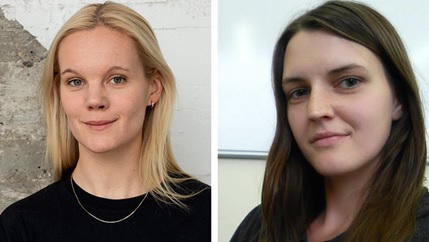27 June 2025
Study on the effect of power napsLooking for Inspiration? Try a Short Nap!

Photo: private (2)
The sleep stage that follows falling asleep, known to researchers as N2, occurs multiple times over the night and rarely involves dreaming. A new study by the Universität Hamburg—University of Excellence further reinforces the assumption that this stage of sleep helps in problem solving.
For the experiment, the researchers asked their test subjects to sleep less than usual the night before the measurements were taken, and to refrain from drinking caffeine. Almost 70 percent of the subjects fell asleep quickly during the experiment. On waking, they were given a screen with a task to solve, whereby the parameters of the task subtly changed after a period of time. Of the subjects, 86 percent who had entered into the N2 stage of sleep had a flash of realization that allowed them to recognize the change immediately. In the group of those who only reached the first stage of sleep, only 69 percent had the same realization, and inspiration only struck 56 percent of those who had not slept at all.
Neuroscientists have long thought that different sleep stages influence creativity and can increase the brain’s ability to experience “aha moments”. The series of experiments at the University of Hamburg has reinforced this thesis, and highlighted the role of the N2 sleep stage.
That said, sleep stages cannot be precisely defined, the falling asleep stage (N1), the first deeper sleep stage (N2), and the deep sleep stage (N3) merge into one another. They differ for example in the level of muscle relaxation and in the levels of brain activity. “We could observe that the brain activity we measured during sleep correlated with the probability of a subsequent flash of inspiration,” explains Dr. Anika Löwe, one of the two authors of the study. “That meant we could use our measurements to predict the likelihood that someone would have a Eureka moment after they slept.”
This previously unknown correlation provides researchers with new perspectives into the role sleep plays in the way the human brain works and thus the basis of all human feelings and perception. For anyone looking for their own Eureka moment, the research data suggests that a short nap increases the likelihood that inspiration will strike, particularly if it’s a deeper sleep.
Original publication:
Löwe AT, Petzka M, Tzegka MM, Schuck NW (2025) N2 sleep promotes the occurrence of ‘aha’ moments in a perceptual insight task. PLOS Biology 23(6): e3003185. https://doi.org/10.1371/journal.pbio.3003185
